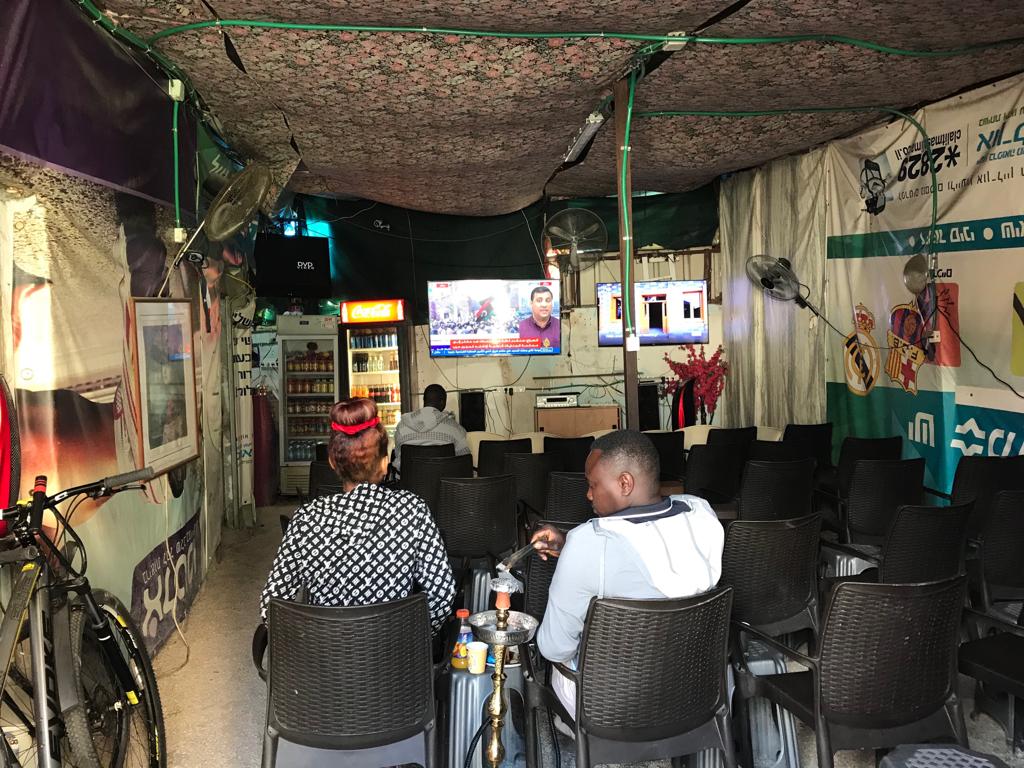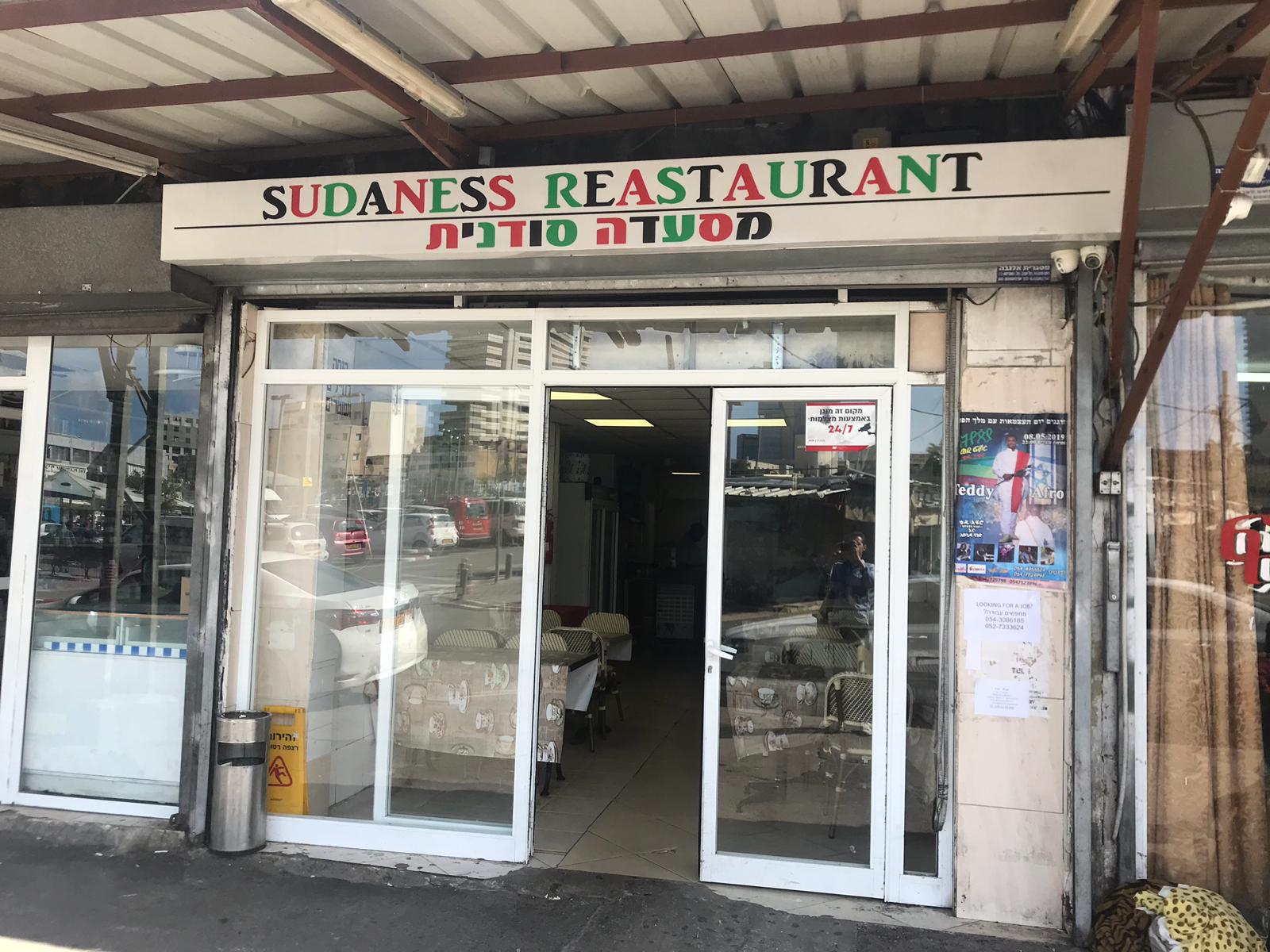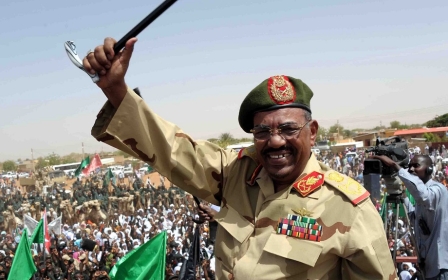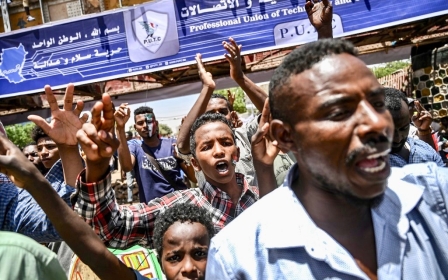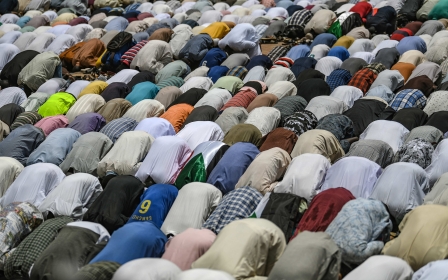'The revolution gave us hope but it's not over': Sudanese in Tel Aviv speak of a life in limbo
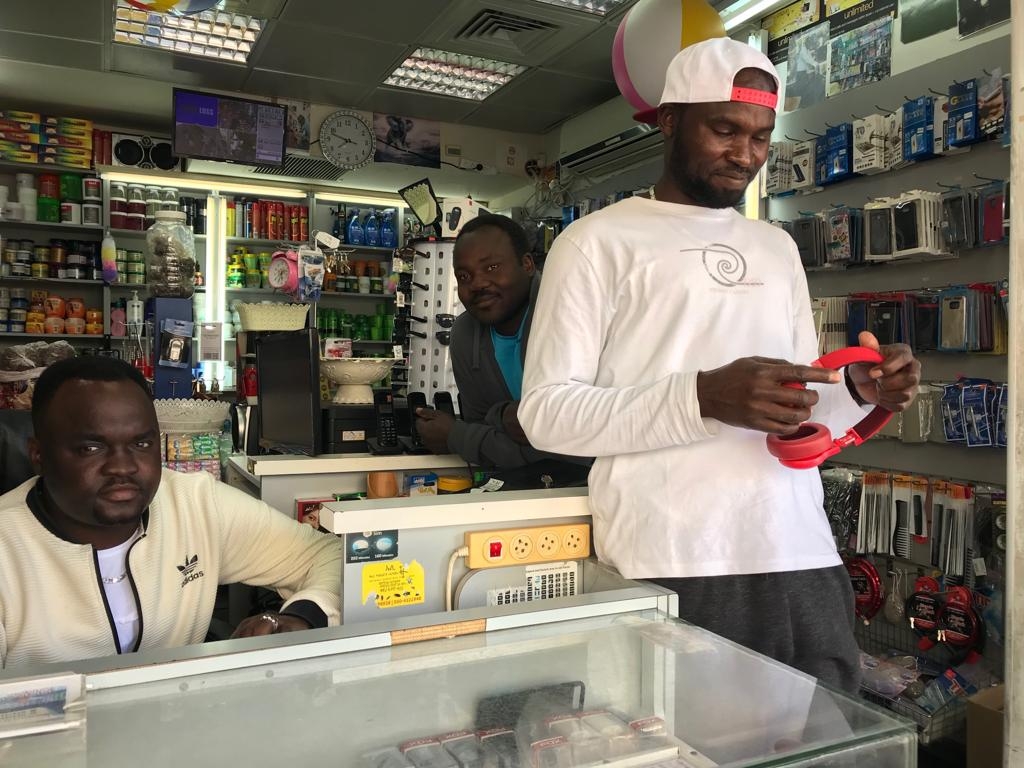
On a squat, small street in south Tel Aviv, Sudanese refugees are watching the latest news from Khartoum breathlessly.
They’re gathered in a makeshift social club, with walls made of tarpaulin, chairs procured from wherever they can be found, and a television at one side endlessly playing news channels.
The area around Tel Aviv’s old bus station is famous for its refugee and migrant communities, and many Sudanese can be found in the shops, cafes and corners that lie under the shadow of the city’s financial district.
Some of the 7,600 Sudanese in Israel fled the fighting that led to the creation of South Sudan in 2011.
The revolution is not 100 percent complete so I can’t say I’m 100 percent happy
- Mohammed, refugee
Others here are from Darfur, the region wracked with state-sponsored killings that have been described as genocide. According to various estimates, hundreds of thousands have died as a result of the conflict, which raged between 2003 and 2011.
New MEE newsletter: Jerusalem Dispatch
Sign up to get the latest insights and analysis on Israel-Palestine, alongside Turkey Unpacked and other MEE newsletters
And now Omar al-Bashir, the man who led Sudan’s government through that deadly period and is wanted by the International Criminal Court over allegations of war crimes, has been removed and been placed under arrest.
Yet Bashir’s fate has not contented Sudanese like Mohammed, who like all refugees interviewed wishes to be known by his first name only.
"The revolution is not 100 percent complete so I can’t say I’m 100 percent happy,” he tells Middle East Eye.
Bashir is gone, it’s true, but the military that removed him after months-long popular protests is made up of many of the same men responsible for the violence that drove Mohammed and thousands of others from their homes.
“We have to continue what we started and take all those who ruled unjustly to court,” Mohammed says. “We must have justice.”
Military rule
Two minutes down the road, in a tiny convenience store, Abdullah agrees.
“The revolution gave us hope, but it is not over. All the demands of the Sudanese people must be addressed, and the government should be civilian, not military,” he tells MEE.
Some 2,500km away in Khartoum, protest leaders and the military council that has taken over from Bashir are locked in negotiations over a handover of power. The military appears reluctant to relinquish control.
“Everything is up in the air, but I hope they will reach a solution,” Abdullah says.
Also in the shop is Brahim, who is in his 40s and has been in Israel for over a decade. He’s desperate to go home.
That won’t happen, he says, until all semblances of the old regime are completely removed.
Neither he nor his relatives still in Darfur have much hope that will happen – especially since two military leaders have followed Bashir into power.
“If someone who committed crimes against me and killed thousands of people has already replaced Bashir, why wouldn’t I believe that it will happen again?” Brahim asks.
Trapped in limbo
Abdullah and Brahim speak in hushed tones about the ordeals they faced crossing from Sudan to Israel via Egypt.
Though they are safe from harm in Tel Aviv, they say they live half-lives, trapped in limbo and facing daily discrimination and police harassment.
Some Israelis have protested the refugees' presence in the neighbourhood, with groups such as the Central Bus Station Neighbourhood Watch group accusing the asylum-seekers of being behind rising crime rates.
Police statistics, however, refute this, showing that though African asylum-seekers make up 70 percent of the neighbourhood, they are responsible for just 40 percent of crime there.
“Our situation is very bad, because of the colour of our skin,” says Adham, who sells shisha pipes down the road. “But black people are in shit all over the world.”
Just one Sudanese asylum-seeker has been given refugee status by Israel, which affords certain rights, such as work permits and housing assistance. Two-hundred more hold humanitarian visas, which allows them to work.
The rest are on temporary visas that need to be continually renewed and keep refugees from bedding in roots.
“We are in our 40s but can’t marry or have children here,” Brahim says. “We eat together and watch TV together, but we are strangers. We cannot have our own families.”
Unhappy though the refugees MEE spoke to are about their temporary visas, they all expressed dread that Bashir’s toppling will prompt the Israeli authorities to demand they return home.
“In recent days when some people have been renewing their visas, the authorities have said ‘after a year you can go back, it’s fixed now’,” Brahim says.
“But we are really worried they will send us back because the situation is so fragile.”
Local media reports, however, suggest that such a move won’t be forthcoming any time soon as Sudan and Israel have no diplomatic ties.
If the situation does improve, however, all the refugees MEE spoke to said they would jump at the chance to go home.
"If there is a deep change and civilian rule takes over all institutions then I will return," Mohammed says.
'We are not isolated'
Although they may be far from home, Sudanese refugees are nonetheless contributing to the revolution back home, says Moatasim Ali, an activist promoting refugee issues in Israel.
“We haven’t just been hearing news about the revolution, we are part of the revolution,” he tells MEE.
We haven’t just been hearing news about the revolution, we are part of the revolution
- Moatasim Ali, activist
Ali says he can’t disclose too much information. “But we are participants in the uprising. We are in constant contact with the protest leaders.”
Sudanese refugees in Israel and across Europe are liaising with activists at home, Ali says. “We are not isolated.”
Back in the social club, Ellen, a young Eritrean woman, says she hopes Sudan’s revolution can inspire her compatriots to do the same.
Banners calling for the removal of Eritrea’s longtime autocrat Isaias Afwerki have already been seen in Khartoum’s protests.
“We were so happy to see the fall of Bashir. Sudan and Eritrea are one family,” she tells MEE.
“It could happen in Eritrea too. I hope it will, but it is too dangerous to even speak about it when I call my family at home.”
Middle East Eye delivers independent and unrivalled coverage and analysis of the Middle East, North Africa and beyond. To learn more about republishing this content and the associated fees, please fill out this form. More about MEE can be found here.


